20 April 2025
Let’s be real for a second—how many times have you booted up a new RPG (Role-Playing Game), walked into its sprawling world, and thought, “Wow, this feels real”? That’s not by accident, my friend. One of the secret weapons behind a truly immersive RPG is lore. Yep, lore. That intricate web of history, myths, politics, and everything in between is what transforms generic pixel landscapes into vibrant, lived-in worlds. It's the difference between a "meh" experience and one that hooks you for hundreds of hours.
But why is lore so dang important? And how does history play into all of this? Buckle up, because we’re about to break it all down like a party of adventurers divvying up loot after a dungeon crawl.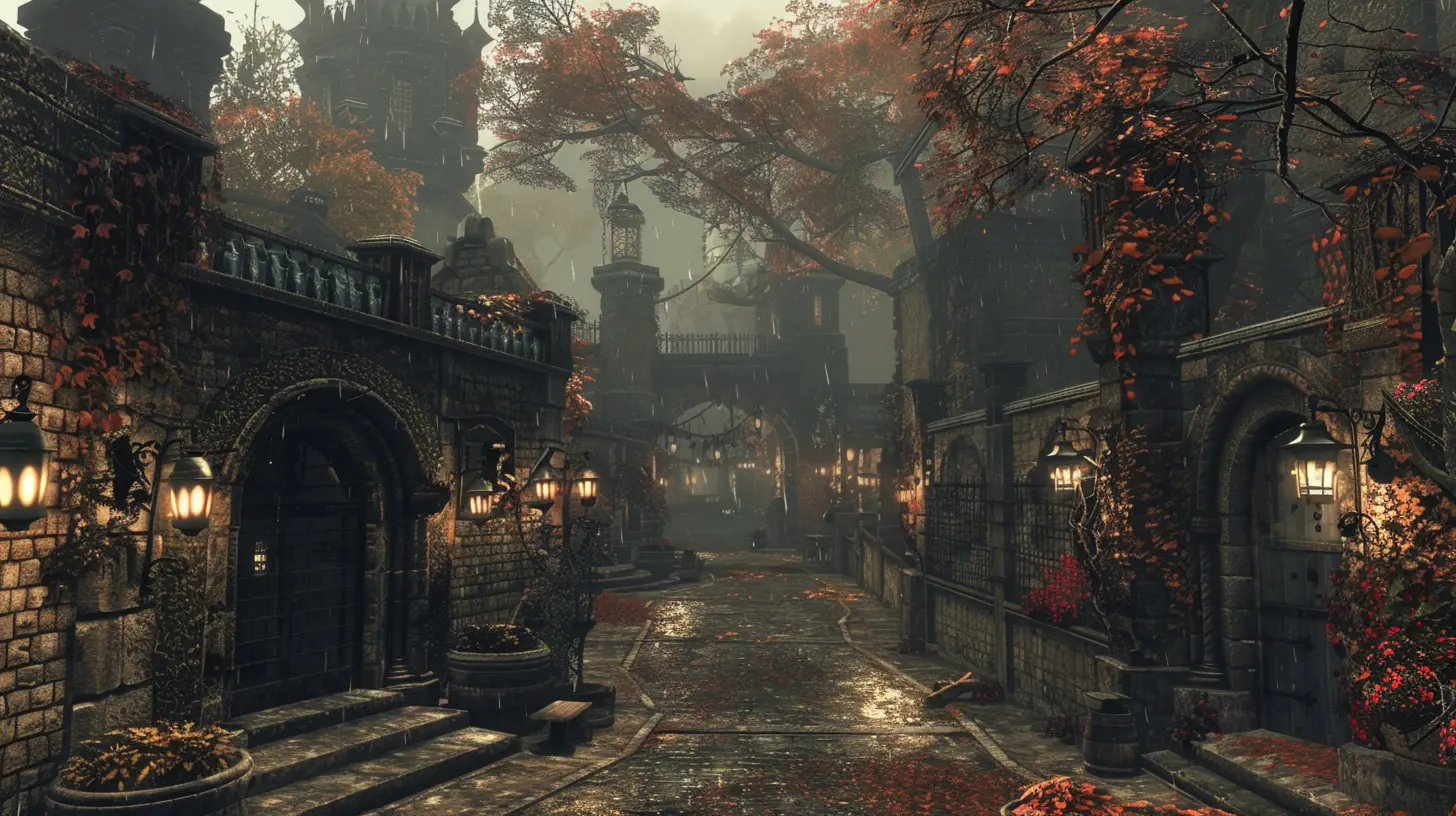
What Exactly Is Lore, Anyway?
You’ve probably heard the term “lore” tossed around everywhere, but what does it really mean? In short, lore is the backbone of any RPG world. It’s the mythology, the legends, the juicy backstories, and the small details that bring the world to life. It’s like the secret sauce that keeps you coming back for more, even after you've beaten the final boss.Think about it: When you dive into a game like The Elder Scrolls V: Skyrim, it's not just the dragon-slaying that gets you hyped. Nah, it’s the why. Why is the world obsessed with dragons? Why are the Nords and the Imperials at each other's throats? Why does everyone have beef with Thalmor? These questions pull you into the world because the lore answers them in clever, satisfying ways.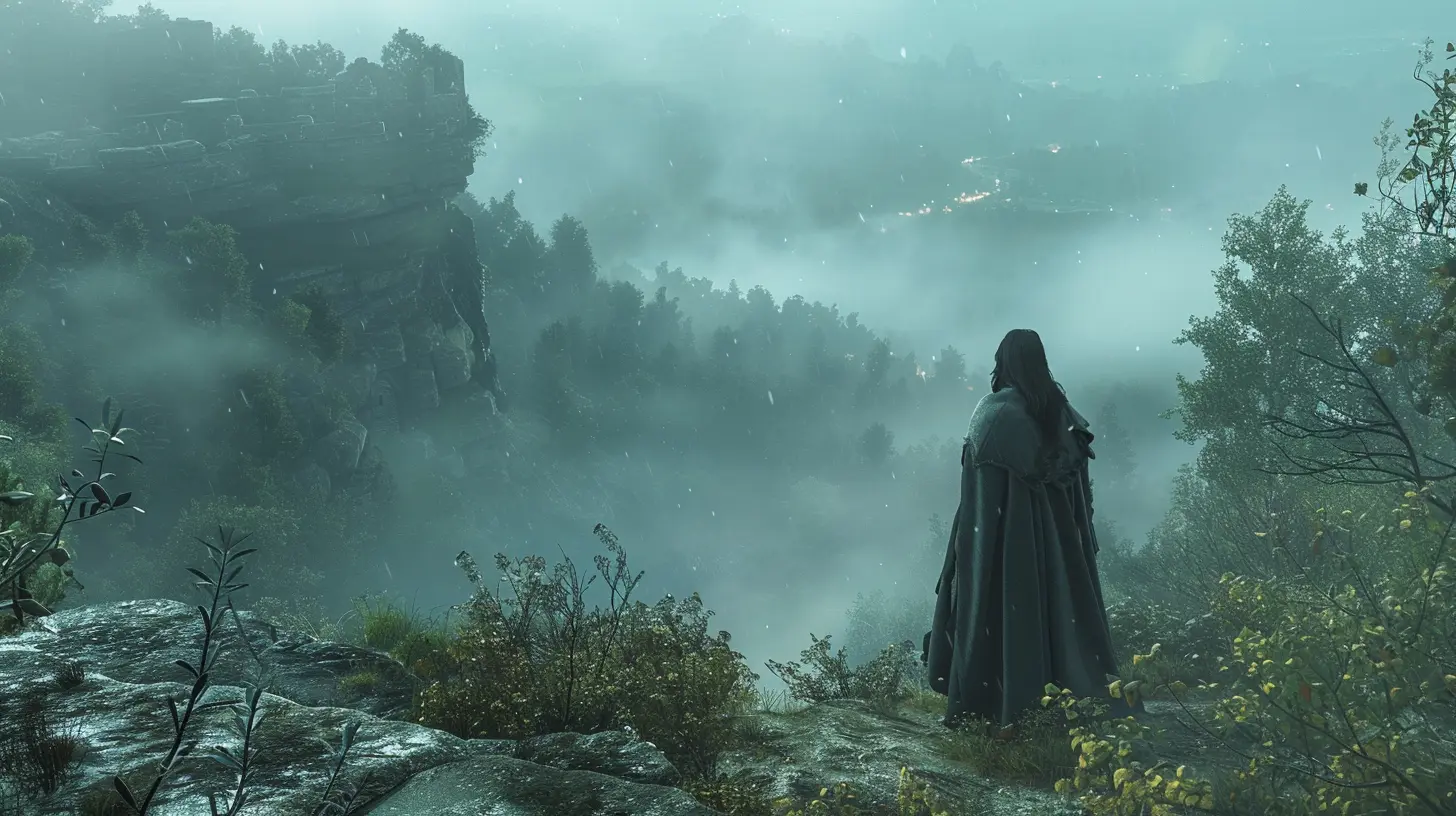
The Marriage of Lore and History
Great RPGs don’t just slap random lore into their worlds and call it a day. The best ones weave history into the mix. Real-world civilizations have layers of history that shape their cultures, and the same applies to virtual worlds.Take Dragon Age, for example. This series doesn’t just hand you a playable map; it hands you a fully fleshed-out world with centuries of history. The lands of Thedas are dripping with conflict—from the oppressive rule of the Tevinter Imperium to the rebellion of the mages. It feels like the game world existed long before you showed up. That’s the magic of creating a "lived-in" history.
And this isn’t limited to just fantasy games. Sci-fi RPGs like Mass Effect also nail the fusion of lore and history. They’ve got galactic politics, alien species with deep backstories, and centuries of war and peace treaties. It’s like the devs pulled out a whiteboard and said, “Alright, let’s map out a thousand years of lore,” before even touching the gameplay mechanics.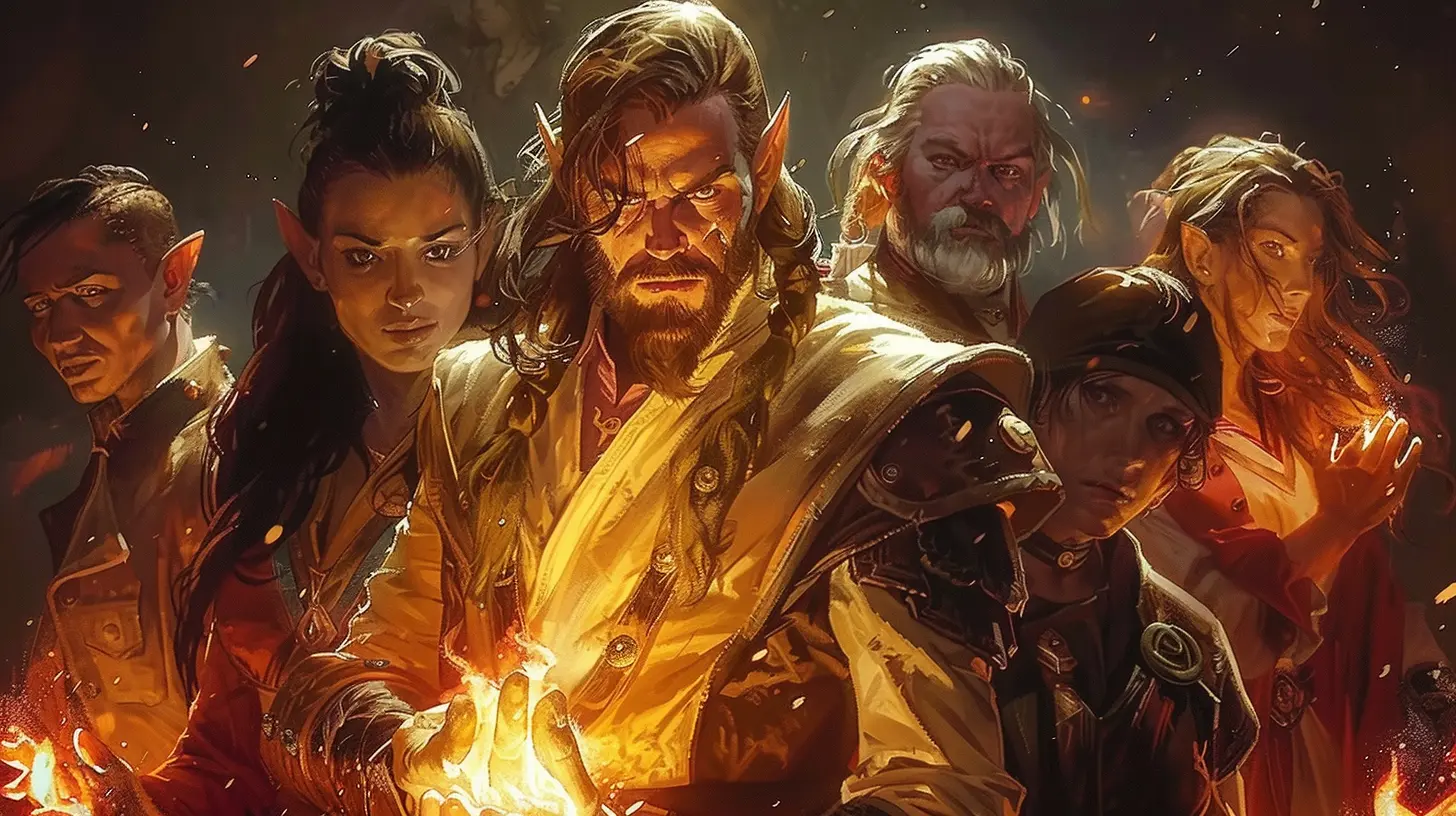
How Lore Enhances Worldbuilding
Okay, so lore is clearly important, but let’s talk specifics. What is it about lore that makes RPG worlds unforgettable?1. Deepen Player Immersion
Let’s face it: nobody wants to play through a world that feels like a cardboard cutout. We want grit, drama, and stakes that feel personal. Lore gives you that. When an NPC tells you the tragic story of how their village was wiped out, and you can historically trace it back to a war caused by greedy nobles, suddenly, every choice you make carries weight.Good lore makes you care. It makes you invest in these fictional characters and their struggles because it feels believable. Why is the city falling apart? Oh yeah, because of that massive famine caused by the poisoned water supply, which itself was caused by an ancient curse. That level of detail? Chef’s kiss.
2. Drive Storytelling
Now, here’s the thing: no great RPG story exists in a vacuum. It’s fueled by the lore. A plot without history is just...meh. It feels hollow, like trying to eat a sandwich with no filling.Take The Witcher 3: Wild Hunt, for example. Geralt’s adventures wouldn’t feel half as compelling if they weren’t tied into centuries of lore surrounding the Elder Blood, the Wild Hunt, and the political tug-of-war between Nilfgaard and the Northern Kingdoms. The story isn’t just good because of Geralt; it’s good because the lore makes everything around him feel real and connected.
3. Breadcrumb Trails for Exploration
You know what’s genius about RPG developers? They know we’re all suckers for lore breadcrumbs. Lore is often scattered across the world in the form of books, scrolls, or ancient ruins. When done right, it sparks curiosity and keeps players engaged.Let’s talk about Dark Souls for a minute. That game doesn’t spoon-feed you its lore. Instead, it gives you cryptic hints through item descriptions, NPC dialogue, and environmental storytelling. And you know what? Players love piecing it all together. It’s like solving a giant jigsaw puzzle, and finding each piece is so damn satisfying.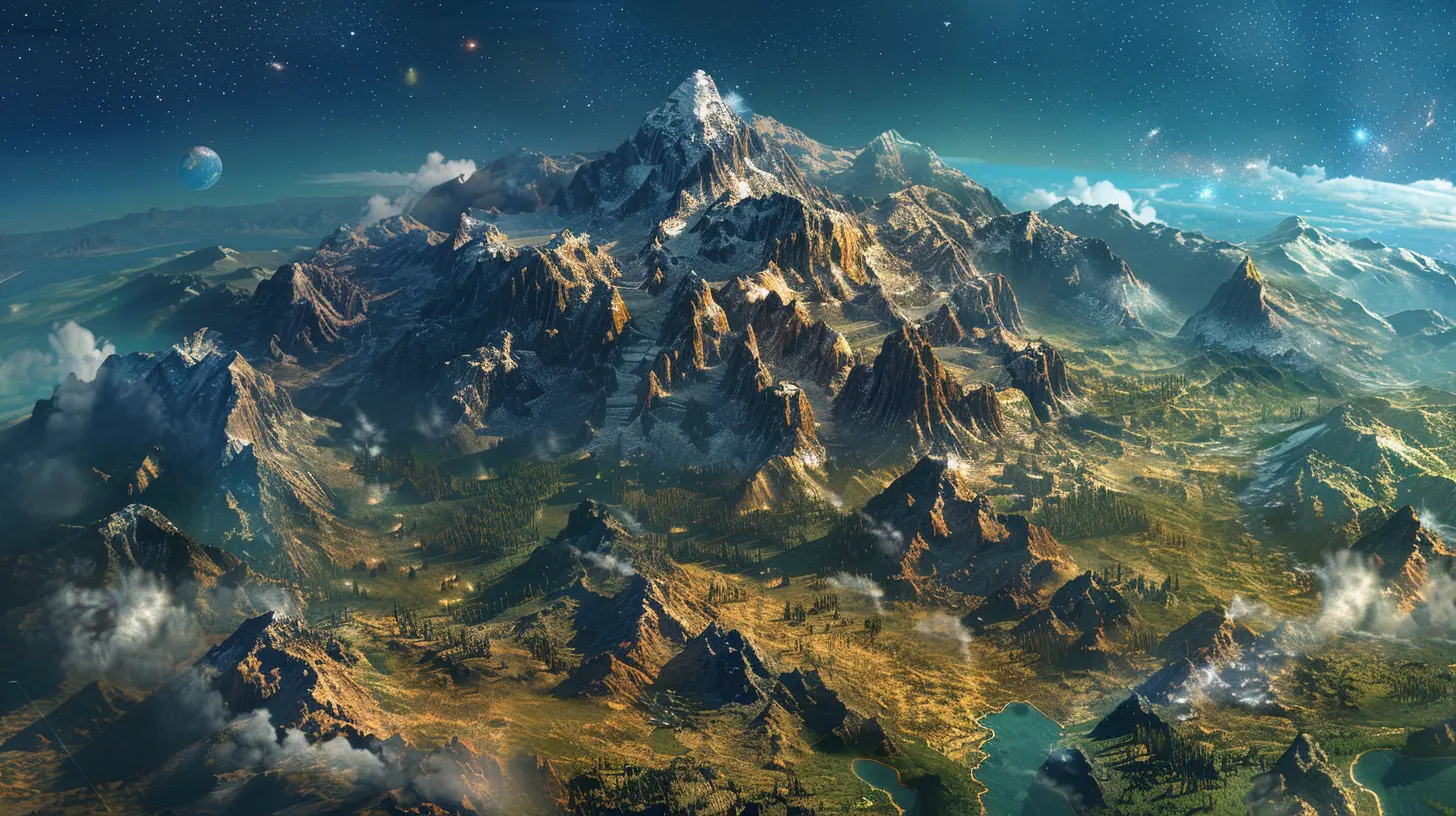
History: The Anchor of Consistency
Lore is cool and all, but without history, everything falls apart. History acts as the glue that holds the world together. It provides a sense of progression and makes everything feel earned.Let’s put it this way: imagine you’re visiting a castle. You don’t want the tour guide to just say, “Here’s a castle, and it’s old.” You want the nitty-gritty details. Who built it? Why? Was it for defense, or was it a vanity project for some egotistical king? The same logic applies to RPGs. Players want to know not just what exists, but why it exists.
1. Historical Consistency
When RPGs have a consistent timeline of events, everything makes sense. Look at The Legend of Zelda series. The franchise’s canonical timeline might be convoluted, but it ties the games together in fascinating ways. The same Hyrule you explore in Ocarina of Time feels vastly different in Breath of the Wild because the history of the land has evolved. Wars have been fought, and civilizations have risen and fallen. That’s the kind of depth that keeps players invested.2. Cultural Identity
Without history, cultures in RPGs feel flat. Games like Final Fantasy XIV excel at creating diverse factions with unique traditions, accents, and even architecture styles—all rooted in their histories. The Garlean Empire’s militaristic nature feels grounded, and the nomadic traditions of the Miqo'te tribes make perfect sense when tied to their lore.How Developers Use Lore to Shape Player Choices
Here’s another thing people underestimate about lore: it directly influences how you play. Ever had to choose between two factions in an RPG and literally sweat bullets because both sides had valid points? That’s the power of lore, baby.Games like Fallout: New Vegas force you to weigh your options because every decision ties back to the world’s lore. Do you side with the authoritarian NCR because of their resources and order, or do you throw your lot in with the chaotic but independent New Vegas citizens? The game doesn't give you easy answers because the lore behind each faction is so rich and morally gray.
The Fine Line: When Lore Overwhelms
Now, let’s address the elephant in the room: not all lore is created equal. Sometimes, developers go overboard and drown players in so much lore it becomes a slog. We’ve all played that one RPG where NPCs just won’t shut up about stuff that doesn’t feel relevant. Yawn.The secret is balance. Lore should enhance the game, not drag it down. If you’re hunting goblins, you don’t need a 10-minute monologue about the goblin trade routes from 300 years ago. Keep it relevant, and sprinkle the lore in organically.
Bringing It All Together: Why Lore and History Matter
In the end, lore and history are the lifeblood of RPG worlds. They make these imaginary places feel as rich and compelling as the real world (sometimes more so). They give context to the conflict, depth to the characters, and meaning to your journey. Without them, an RPG is just a hollow shell.Whether you’re questing through the lands of Tamriel, fighting the Blight in Thedas, or piecing together the haunting history of Lordran, it's the lore and history that make every moment unforgettable.
So the next time you crack open a dusty in-game tome or stumble upon a mysterious ruin, take a second to appreciate the love and effort that went into creating it. After all, the devil’s in the details—and in RPGs, those details are everything.



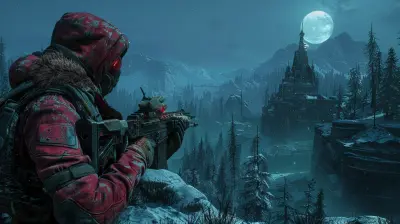
Destiny McAndrews
Lore enriches RPGs, creating immersive worlds that captivate players' imaginations.
April 24, 2025 at 3:46 PM